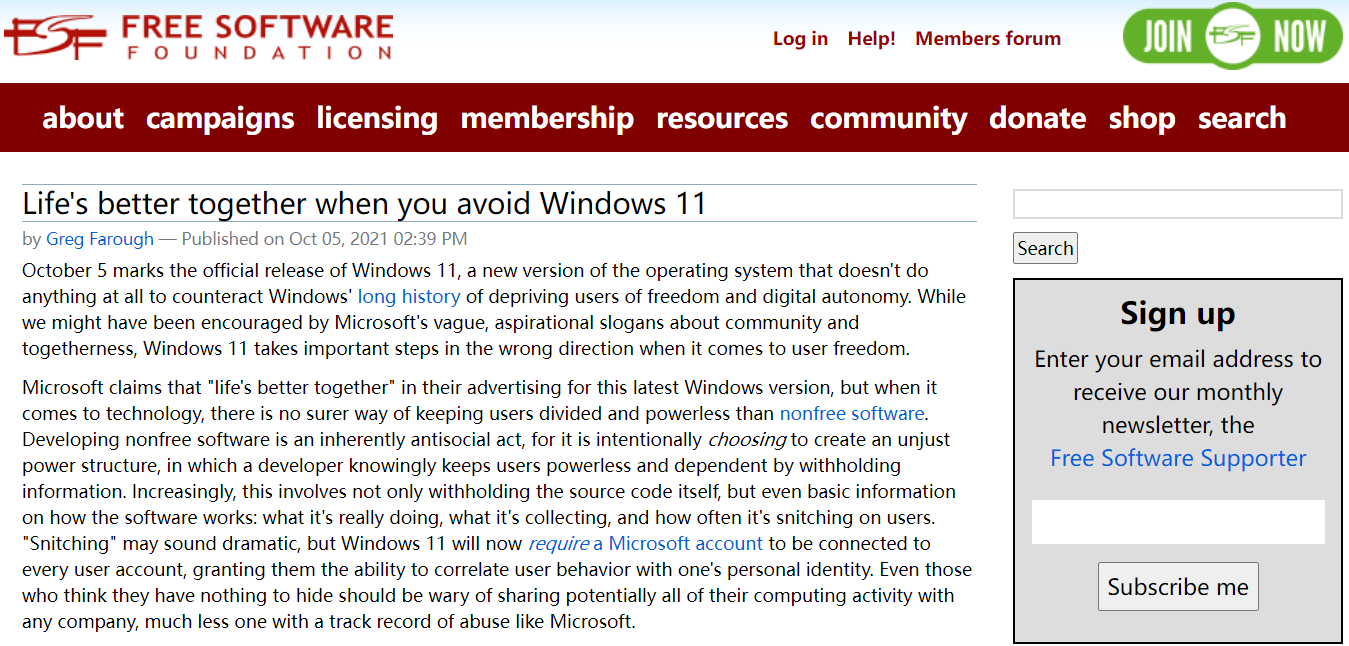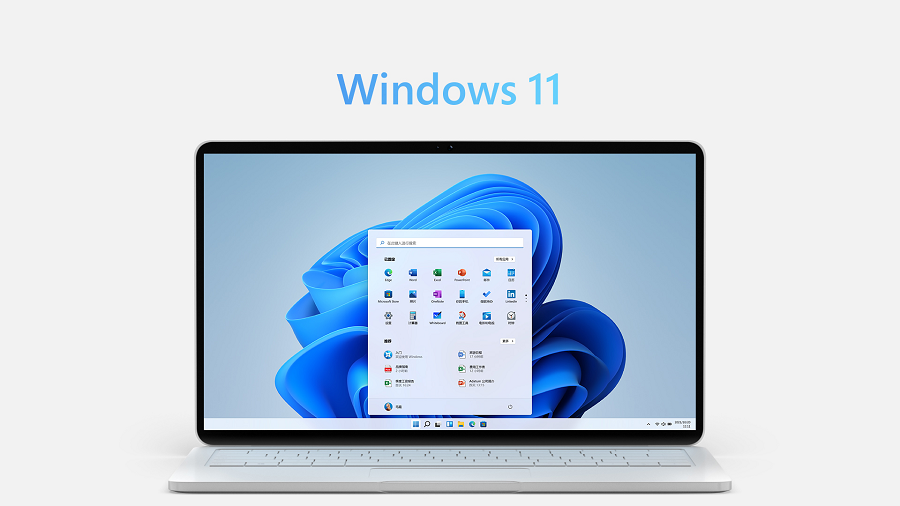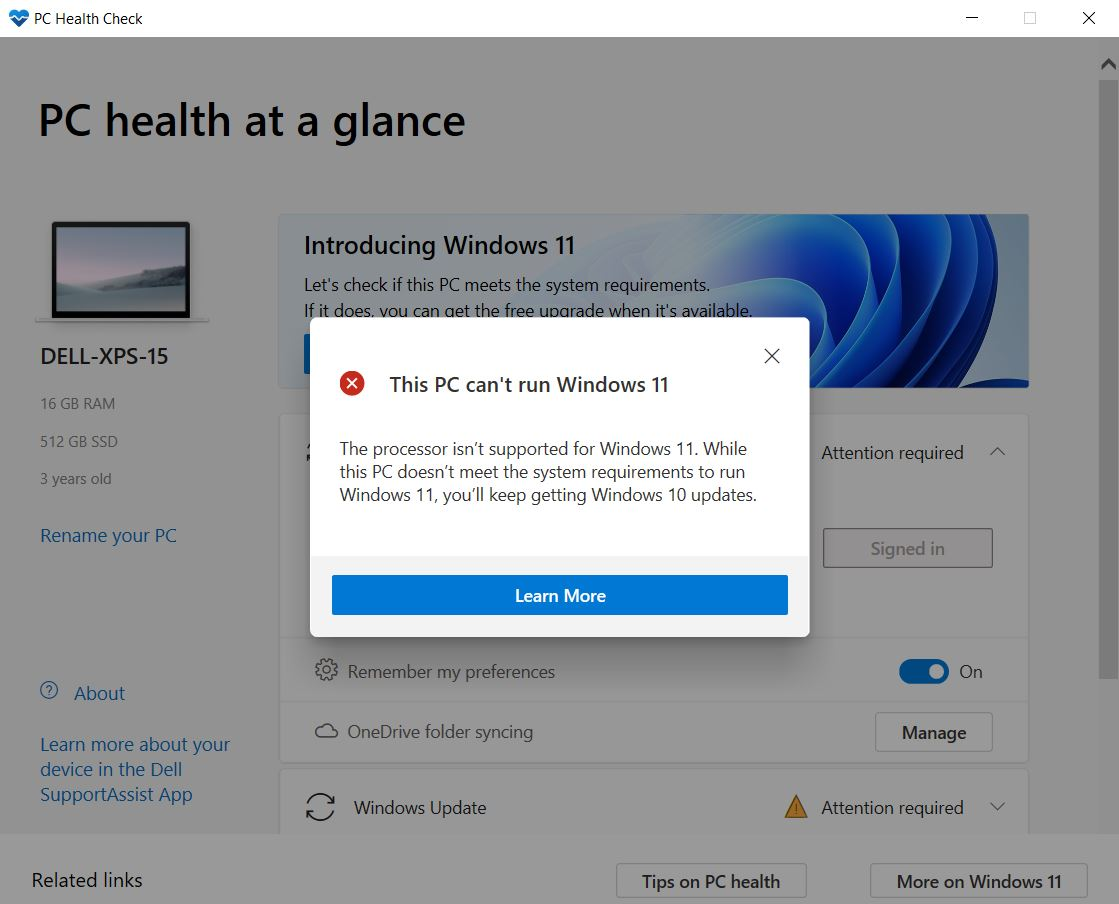Windows 11 was officially released last week. On the same day, the official blog of the Free Software Foundation (FSF) published an article criticizing Windows 11 and calling on the public to abandon the use of Windows.
article author Greg Farough believes that the new version of the operating system Windows 11 has not done anything to "wash out" the black history of Windows that has long deprived users of freedom and digital autonomy. Although Microsoft has many inspiring slogans about community and unity, Windows 11 is still moving in the wrong direction when it comes to user freedom.
Greg Farough pointed out in the article that Windows 11 now requires a Microsoft account to connect to each user account and allows Microsoft to associate user behavior with personally identifiable information. In this regard, he said that even those who think that there is nothing to hide should be vigilant about this behavior-sharing all their potential computing activities with any company, not to mention that there are "abusive information" records like Microsoft. s company.
Regarding one of the requirements for upgrading to Windows 11-the TPM 2.0 security processor, Greg Farough also holds a pessimistic view. He said that although TPM is called a "trusted platform module," when it is deployed by a proprietary software company, its relationship with users is not trust, but betrayal. When TPM is fully controlled by users, it can be an effective way to strengthen encryption and user privacy, but when it is in the hands of Microsoft, Greg Farough is not optimistic about it. Therefore, in this case, it is no longer appropriate to call a machine running Windows a "personal computer" because it serves Microsoft more than it obeys users.
Windows 11 已在上周正式发布,就在同一天,自由软件基金会 (FSF) 的官方博客发表了一篇批评 Windows 11 并呼吁大众放弃使用 Windows 的文章。

文章作者 Greg Farough 认为,新版本操作系统 Windows 11 并没有做任何事情来为 Windows 长期以来剥夺用户自由和数字自主权的黑历史“洗白”。虽然微软有许多关于社区和团结的鼓舞人心的口号,但在用户自由方面,Windows 11 却仍在错误的方向上迈进。
Greg Farough 在文章中指出,Windows 11 现在需要一个微软帐号来连接每个用户帐号,并允许微软将用户行为和个人身份信息关联起来。对此他表示,即使那些认为没有什么需要隐藏的人也应该对这种行为——与任何公司分享其潜在的所有计算活动保持警惕,更不用说像微软这种有“滥用信息”记录在身的公司。

对于升级至 Windows 11 的要求之一 —— TPM 2.0 安全处理器,Greg Farough 同样抱着悲观的看法。他表示,虽然 TPM 被称为“可信平台模块”,但当它被一家专有软件公司部署时,它与用户的关系不是信任,而是背叛。当 TPM 完全由用户控制时,它可以成为加强加密和用户隐私的有效方法,但当它在微软手中时,Greg Farough 对此并不乐观。所以在这种情况下,将运行 Windows 的机器称为“个人电脑”已不再合适,因为它对微软的服务超过了对用户的服从。
Greg Farough 认为更讽刺的是,微软把检查 PC 与 Windows 11 是否兼容的程序称为"PC Health Check",他认为一台“健康”的 PC 应该尊重用户意愿,支持运行自由软件,而非通过“不可信任的”的计算来故意限制用户。

Greg Farough 还指出,微软口中的“爱开源”和“爱 Linux”是虚伪的,因为微软只是提到了“自由软件”,却没有提及内在的“自由”精神。当然,微软员工确实为自由软件做出了贡献,这些贡献也让许多人受益。然而,微软并没有把这个理念延伸到他们的操作系统。
